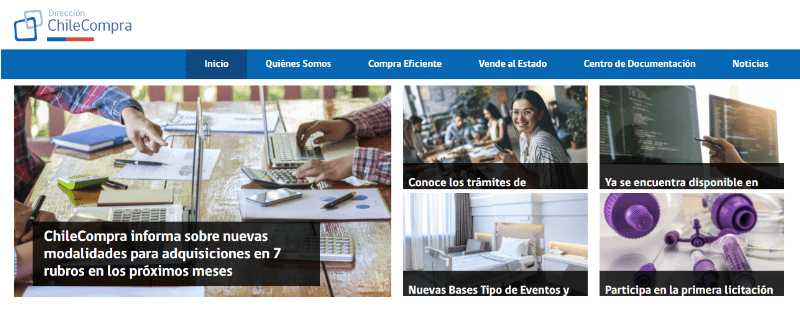Regulatory Alert: National Economic Prosecutor's Office publishes market study on public purchases

November 5, 2020 | By Felipe Bahamondez, Sofía O´Ryan y Macarena Alliende.
The chilean antitrust authority, the National Economic Prosecutor’s Office (Fiscalía Nacional Económica or FNE) published the Final Report of a Market Study on Public Purchases, in which it analyzes the conditions of competition in purchases made through the public purchases mechanism, ChileCompra (regulated by Law No. 19,886). In the report the FNE stressed the need of a structural reform in the market, and made a series of recommendations, which were sent on Wednesday, November 4, to the Ministry of Finance.
Regarding its fundamental findings, the FNE identified a deficiency in the planning and budget in the annual purchase of public bodies, which is why it recommended granting regulatory powers to ChileCompra and expanding those of the Public Procurement Tribunal. Additionally, the FNE proposed to advance in the digitization, inspection faculties and the modification of existing sanctions in the purchasing process.
Regarding the operation and competitive performance of ChileCompra, the study focused on analyzing the three main mechanisms for selecting State providers:
- Public procurement: the Prosecutor’s Office highlighted the low participation of bidders in the tenders due to the lack of adequate planning, and that 20% of the bidding specifications would contain limitations to competition. To improve the bidding processes, the FNE proposed to carefully analyze the needs within the public sector and the delimitation of markets, standardize administrative aspects, and increase the times and sizes of contracts, to maximize the number of participants.
- Framework agreements: the FNE identified an absence of competition for-the-market and of internal rules to assign suppliers. To improve this mechanism, the FNE suggests ensuring competition for-the-market together with having supplier assignment rules based on competitive variables, in addition to improving the delimitation of markets.
- Direct treatment: the study found that the regulatory standards were not met to justify the use of this mechanism in most of the cases, and thus recommended to increase the control and review the design and existence of the causes that enable its use.
Additionally, the FNE identified potential administrative savings if there were optimal contracting rules, and possible incentives to participate in procurement processes, if administration (payment, ttracking and monitoring) was improved.
As a result of the recommendations, the FNE estimates that the State could save between USD 290 million to 855 million per year, while increasing the competition, efficiency and transparency of the purchasing process.
| Contacts |
| For more information, please contact: |
| Felipe Bahamondez Socio fbahamondez@dlapiper.cl |
| Sofía O´Ryan Counsel soryan@dlapiper.cl |
* This report provides general information on certain legal or commercial matters in Chile, and it is not intended to analyze in detail the matters contained in it, nor it is intended to provide a particular legal advice on them. It is suggested to the reader to look for legal assistance before making a decision regarding the matters contained in this report. This report can not be reproduced by any means or in any part, without the prior consent of DLA Piper BAZ | NLD SpA. (c).


